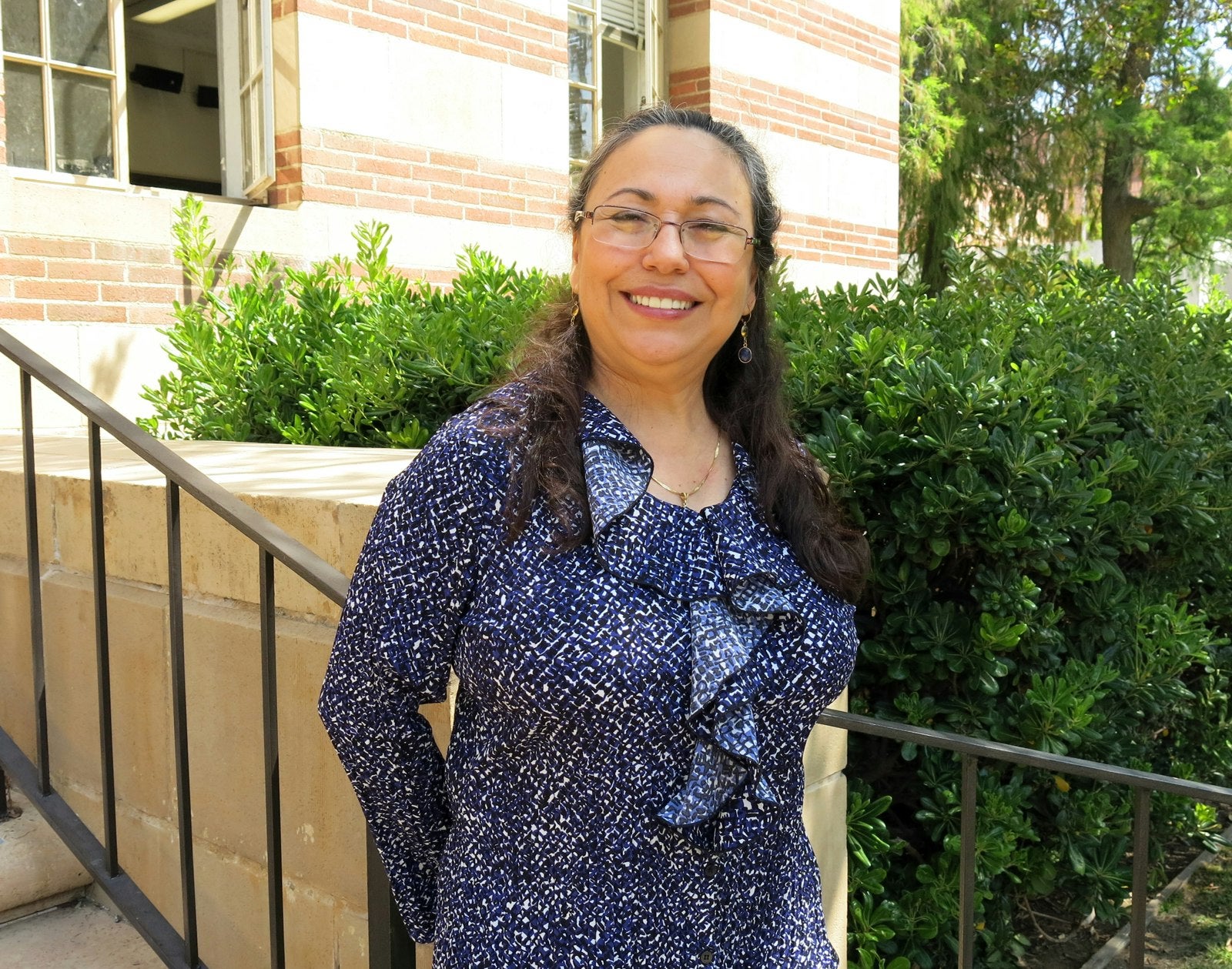UCLA Professor of Education Sylvia Hurtado will present the 2021 AERA Distinguished Lecture on Friday, April 9, 9:20-10:20 a.m., PDT. Her virtual presentation on “The Inevitability of Racial Bias and Exclusion: Implications for Identity-Based Education” is based on her career-long research of campus racial climates, the trajectories of pathways of underrepresented students in scientific research and professional careers, and student and institutional outcomes of diverse and broad access institutions in higher education.
Hurtado says that looking back on her career as an academic researcher, “You think about your career and [wonder], ‘What message can I send?’ and what I was thinking about was really trying to touch people … where the issues of race and recognition and identity become very personal, and that reflects a lot of my research and my teaching.
“I hope that I touch those chords with this talk, and also tie it [together] not just at the individual level but also at the institutional [level],” Hurtado notes. “As we’ve seen more recently, recognition bias is about creating this facelessness… not really understanding the differences, not recognizing people’s identities. It happens on a daily basis, but we also know that there are some very serious consequences to recognition bias when it plays into racial profiling or hate crimes. This is a great time to have a broader conversation about how those issues really impact us individually, in how we look at each other and how we become more humane in understanding and appreciating our identities.”
Professor Hurtado says that identity-based education goes beyond the aims of culturally responsiveness, “… recognizing multiple social identities humanizes our interactions because now we understand a little bit more about each other, or, are wiling to learn,” with a recognition of the uniqueness within and among groups that may seem, to those outside those groups, almost the same.
“There’s this notion of a failure to differentiate, or recognition bias – mistaking someone from a particular group as someone else, or someone from a different ethnicity. Asian Americans face this, Latinos face this, African Americans face this. It’s a very common phenomena in all groups. Everyone has some level of recognition bias. It [hits] home because if your brain automatically goes to categorizing people – which it does, because we try to save our effortful thinking for problems that are hard – we generalize, we put people into categories.
“Students are well aware that they’re not being differentiated – you’re just Black, you’re just Asian, you’re just Latino. People are not viewed as individuals. It’s almost like being faceless, or invisible. I talk about how that invisibility becomes a very painful experience for some students. And others actually learn how to subvert it or take advantage of it, but they realize when they’re not being recognized as individuals or members of a particular ethnic group because there is no knowledge, either by the instructors, peers, or staff.
“Identity is incredibly important to specific groups – their cultural traditions, their histories of immigration, all of that,” notes Hurtado. “And becoming more identity-focused, we actually incorporate that in our teaching, in our inclusion practices in the classroom, in the way we collect data on campuses. We’re more specific about specific groups because we want to monitor their progress more accurately. There are a lot of different ways, both institutionally and also in the classroom in which we can become more identity-based in instruction and also learn from each other.”
Professor Hurtado is the former director of the Higher Education Research Institute (HERI) at UCLA and teaches in the division of Higher Education & Organizational Change (HEOC). She teaches the fundamentals of higher education and also intergroup relations, which provides skills for facilitating difficult conversations across race, class and gender. Her research interests include advancing higher education for underrepresented groups, organizational change, and training a diverse scientific workforce.
Hurtado served on the Academic Senate’s Board of Admissions and Relations with Schools for the University of California for six years, chairing changes on admissions review and eligibility to attend California’s public four-year colleges and universities. She is currently a co-chair (with UCLA Assistant Vice Provost Alfred Herrera and Professor Vilma Ortiz) of the Chancellor’s Hispanic-Serving Institution (HSI) Task Force that will guide the University toward becoming an HSI.
In 2018, Hurtado was recognized by AERA with the Social Justice in Education Award. She has also been honored by AERA with the Division J Exemplary Research Award (2015) and was selected as an AERA Fellow in 2011. She received the Outstanding Latina/o Faculty in Higher Education Research Award from the American Association of Hispanics in Higher Education in 2011. Hurtado’s co-written book, “Hispanic-Serving Institutions: Advancing Research and Transformative Practice” (With Anne-Marie Núñez and Emily Calderón Galdeano, New York: Routledge, 2015) was recognized as the Best Academic Themed Book at the 2016 International Latino Book Awards.
Professor Hurtado achieved her Ph.D. in education at UCLA; her Ed.M. in administration, planning and social policy at Harvard University, and her A.B. in sociology at Princeton University.
At AERA, Hurtado will also present in a session on, “The Science of Effective Mentoring in STEMM: A Report of the National Academies of Science, Engineering and Medicine,” to be held on Sunday, April 11, 7:40-9:10 a.m., PDT.
For a schedule of Professor Hurtado’s talks at AERA, visit this link.
